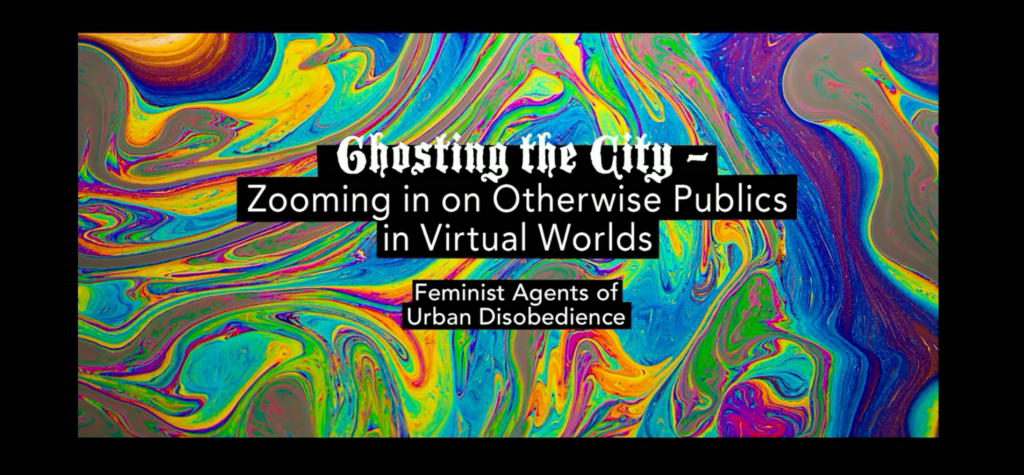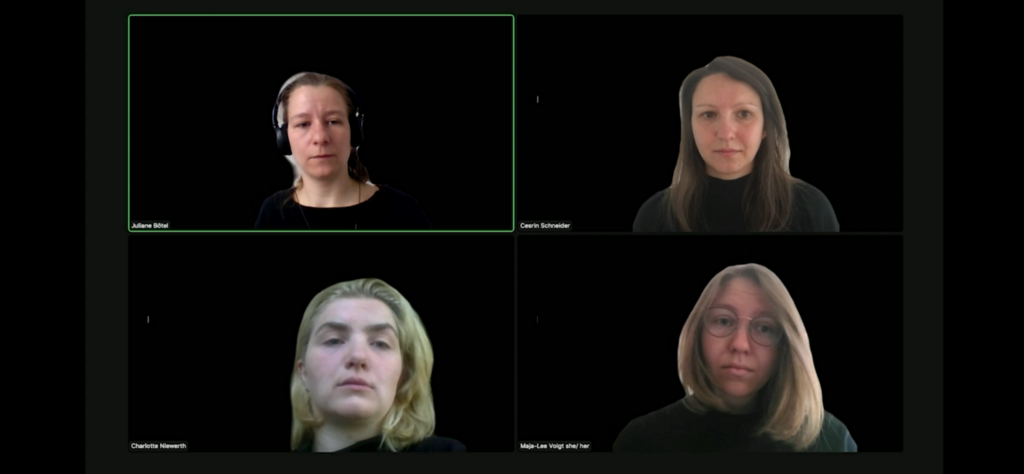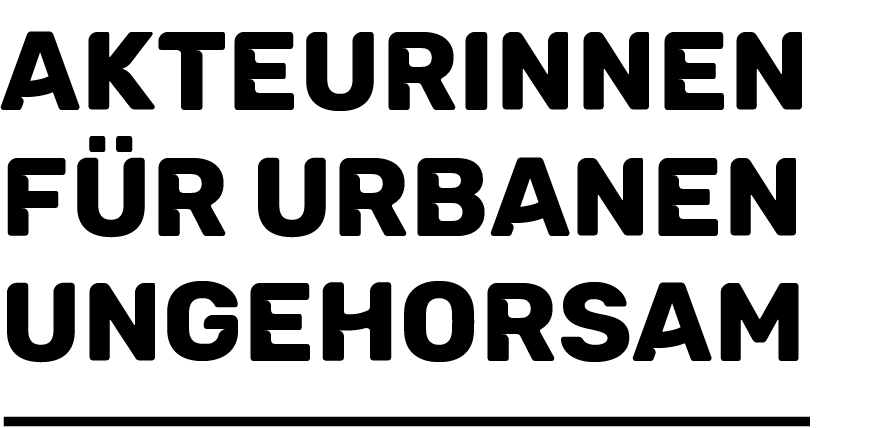With COVID-19 haunting city streets for two years now, putting exciting, dense, and beautifully messy encounters at a (social) distance, the urbanscape seems to slowly resemble a ghost town. Its occupants are ghost (delivery) riders, human advertisement columns, promoting convenience served on your doorstep; ghost kitchens, feeding an urban infrastructure from invisible backyards; ghost workers, filtering frontends and contents; and shady smart city governing strategies, profiting from personal data shadows. During the pandemic, the public collective coming-together of differences has ghosted the city.
The spirit of (urban) community is newly and virtually gated, but not gone. It (temporarily) transitioned into rich data flows, algorithmic architectures, and immaterial, yet still ‘real’, digital agoras. Moreover, ghosting and glitching – slipping through static materializations, machines, and normative mechanisms – in this increasingly hybrid world allows for new forms of virtual encounters in an online otherwise. The ‘in-between’ of ghosts and ghosting practices encourages to occupy the cracks, hack technocapitalist and patriarchal (power) technologies, and find alternative opportunities of world-building in the margins against all oppressive odds (hooks 1989) – be it in the virtual, the unattributable data or in the urban space, the invisible places and actors that maintain the environment.
Curating an interactive, digital, and multilayered map, we not only want to think outside the Zoom tile and black-boxed (power) technologies behind it; building on experimental exploration methods of everyday life as well as on our ongoing qualitative research on the platformization of the urban we want to tell (ghost) stories. In a pandemic ‘ethnography from our home offices’, we invite everybody to follow us to the invisible, sometimes spooky digital backends and material urban backyards in Hamburg, Germany. Audio files, illustrative visualizations, mental maps, and (web)links will send you on a 90-minute-ghost hunt questioning controlling codes that privately aim to predefine urban futures; and similarly revealing the resistive fight for liberation in its ghosted cracks. Thus our map traces the Afrofuturist, Latinx, and queerfeminist call to abolish the multidimensionally violent, corporeal, and dominant (techno-social) order – towards the rewriting of spaces of possibility and a radical transformation; towards virtual and urban otherwise worlds.


Recommanded Citation:
Akteurinnen für urbanen Ungehorsam (2022, forthcoming): Ghosting the City – Zooming in on Otherwise Publics in Virtual Worlds. Performative Paper Presentation at Virtual Otherwise – A Biennal Anthropology Conference. Online.
Conference:
Virtual Otherwise – A Biennal Anthropology Conference
Credits:
Akteurinnen für urbanen Ungehorsam
